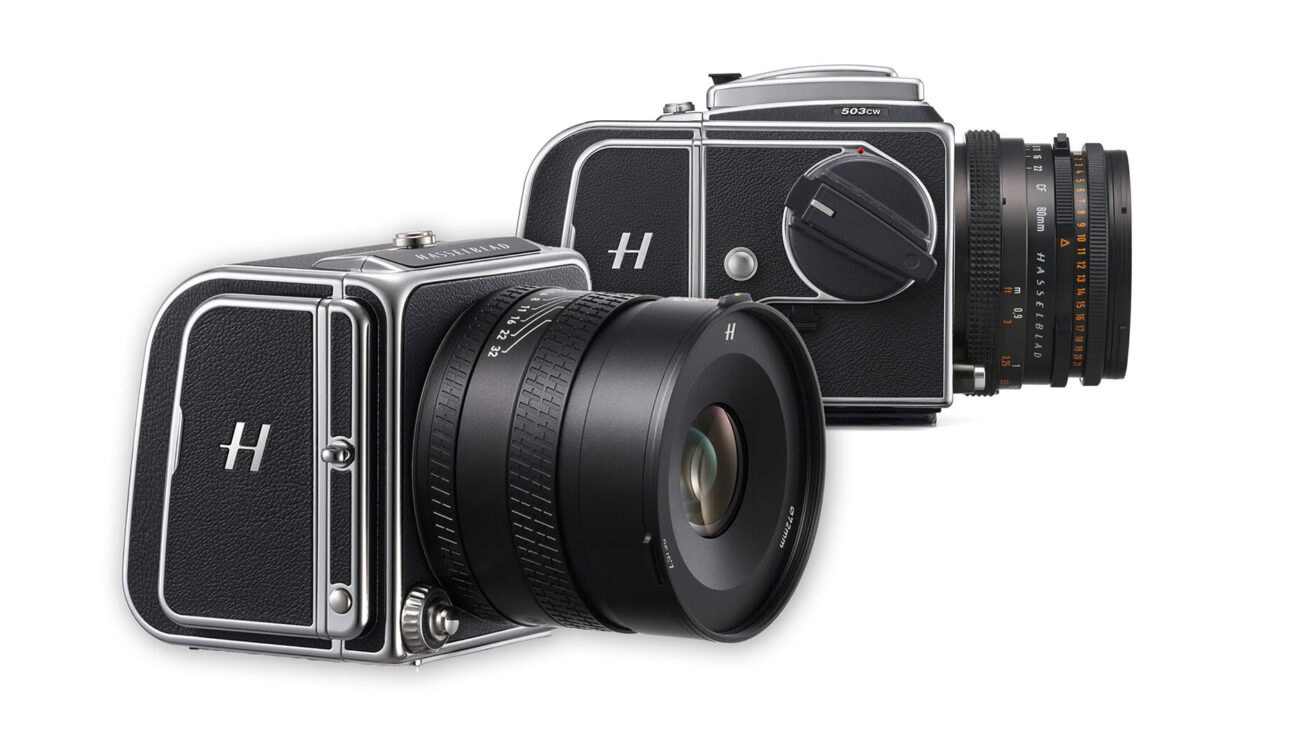
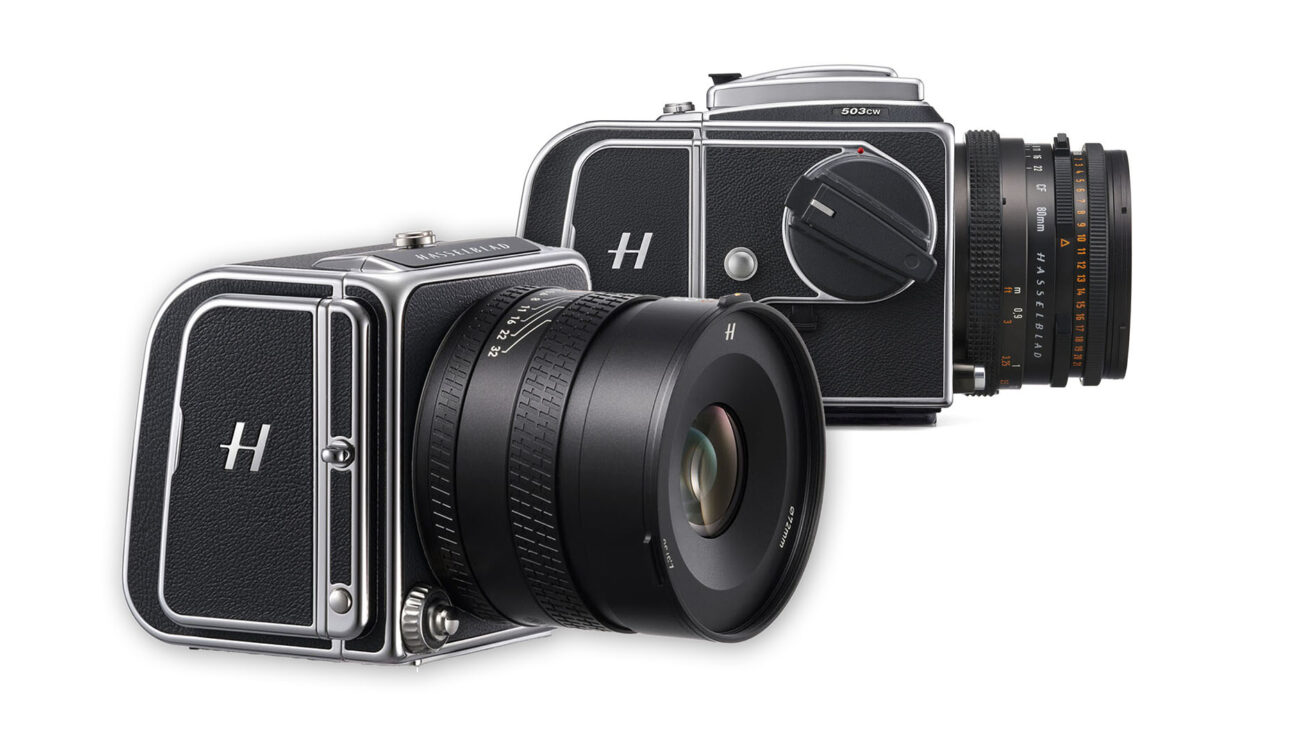
Hasselblad’s 907X is a compact, box-shaped digital camera. It bears an excellent sensor, similar to the unit found in FUJIFILM’s GFX 100, 100c, and 100 II cameras, as well as Hasselblad’s own X2D 100C. The large 44x33mm BSI CMOS is known to produce impressive video output, but as with its former model, the 907X 100C lacks any video functionality. So why is that? Let’s dive in.
The Hasselblad 907X 100C is probably the most compact 100-megapixel camera available. It represents a rather unique design approach, reminiscent of both Hasselblad cameras of old as well as some contemporary mirrorless entries like the SIGMA fp, with which the 907X shares the shutterless design (since Hasselblad’s design philosophy opts for a lens-based leaf shutter).
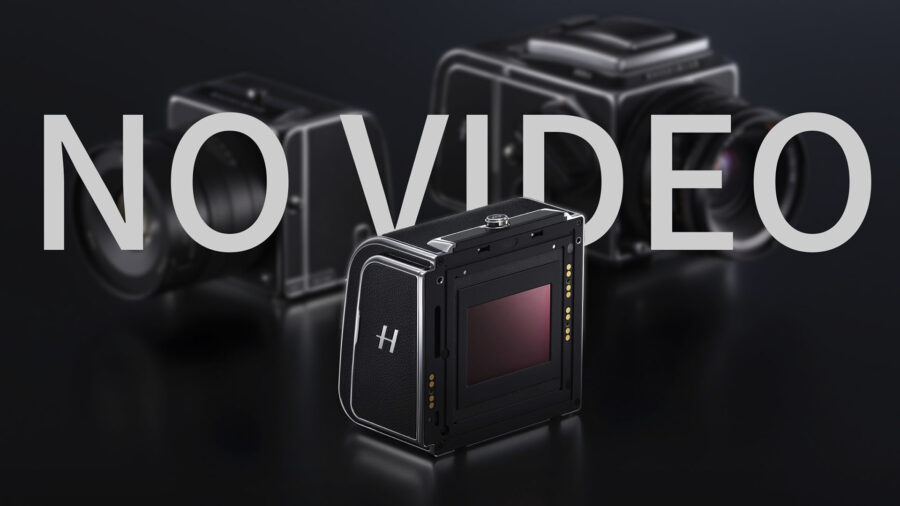
The 907X 100C is a modular system consisting of a digital back, responsible for all capture and processing operations, and a small XCD lens mount dubbed the 907X. That thin slate enables the mounting of XCD lenses, a few control points, and external accessories. The CFV-100C back is an independent unit. The back includes a sensor, processing unit, battery, CFExpress card slot, and an internal 1GB SSD to boot. This independence enables its attachment to legacy Hasselblad V cameras, technical cameras, and more since it requires no externals to operate completely.
A compact, modular system with relatively fast-reading, large BSI CMOS, equipped with phase detection autofocus sensors and face detection that can operate independently no matter what you put in front of it – that sounds like a videographer’s dream.
Just imagine the possibilities!
The mirrorless revolution has changed everything we knew about adapting lenses. Shortening the flange distance created virtually infinite adapting options. The 907X takes it one step further, with next to no flange distance. The sensor is located at the edge of the device, potentially allowing for unprecedented room for adaptation. Adapting the legacy Hasselblad V system may be enough to send shivers down the spine of some nostalgic hybrid shooters. Imagine classics like the Zeiss Planar 80mm f/2.8 or 50mm Distagon f/4.0 on your next project. Imagine the possibilities of a Hasselblad FlexBody or a technical camera. Imagine third-party adapting options for what is, essentially, a medium-format box camera.

It won’t be Hasselblad’s first video-capable medium-format camera
While the Swedish manufacturer is famous for its heritage and tradition, Hasselblad doesn’t shy away from innovation. The company introduced several segment-defying cameras and features over the years.
We don’t even have to go that far. Hasselblad’s previous 907X, the 50c, pushed the boundaries of its aging sensor to squeeze 2.7K video. Might not sound so impressive but we’re talking about an ancient sensor, and the company managed to extract a resolution higher than any other company using it.
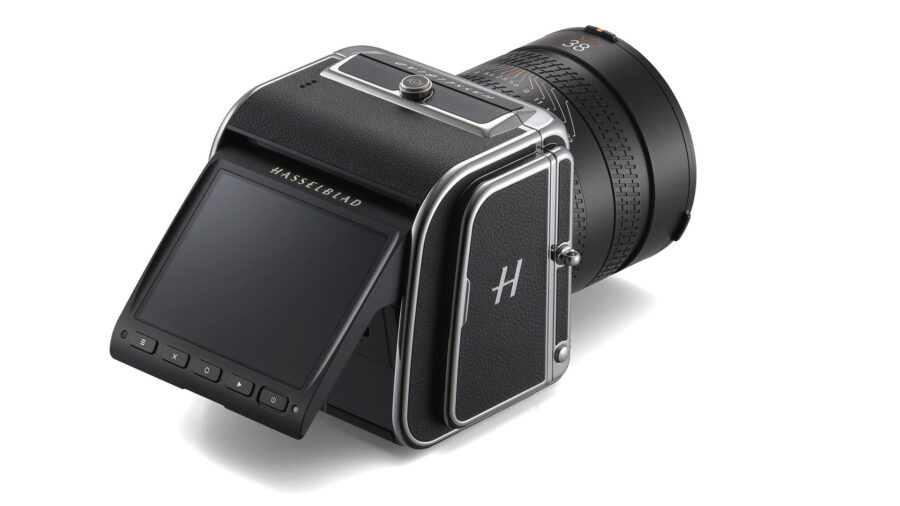
A videographer’s dream, but not a reality
As good as the raw specs sound, the Hasselblad 907X 100C cannot fulfill this dream, since Hasselblad omitted video functionality. Just like they did with its more conventionally-designed sister model, the X2D 100C also shares the same potentially video-capable sensor. The X2D 100C could have been a very nice medium format hybrid, going head to head against FUJIFILM’s offers. Alas, Hasselblad chose not to pit it against them in this arena. Considering the proven sensor and the modular nature of the 907X, I find the absence of video capabilities in this model to be quite disappointing.

So why the 907X 100C can’t shoot video?
There are solid arguments against the inclusion of video functionality in this camera. To my best speculation, those include technical hurdles as well as marketing concerns. Let’s start with the technical:
the Hasselblad 907X 100C is small and jam-packed. The inclusion of demanding processing requirements into such a tight enclosure may cause some serious overheating issues.
An $8,199 camera with operational issues might not be well received by prospective buyers, and for a good reason. I can fully understand why the company wouldn’t want the camera’s web presence to circulate around its video problems, instead of its unique stills offering. This brings us to the second issue – this is a stills camera, fair and square. Even if it had some impressive video features, I would find it hard to imagine a videographer choosing it over the more affordable FUJIFILM GFX100 II.
While the 907X does spark the imagination, the much chunkier GFX100 II body enables potentially better thermal management, internal stabilization, an EVF, and more. FUJIFILM has also made some meaningful strides regarding video processing with this camera, probably the most video-capable medium format hybrid to this day. And even that camera poses some serious compromises and will probably be much more popular with the stills crowd.
Reality check
In the end, the dream of a perfectly styled, compact, large-sensor camera is a bit far-fetched. The Hasselblad 907X 100C will provide a unique experience for photographers but it’s simply too small, pricey, and niche to expand its capability into the demanding realm of motion capture. We can still hope for a firmware update that renders this entire article obsolete. I myself would prefer such an interesting camera over my writing ego…
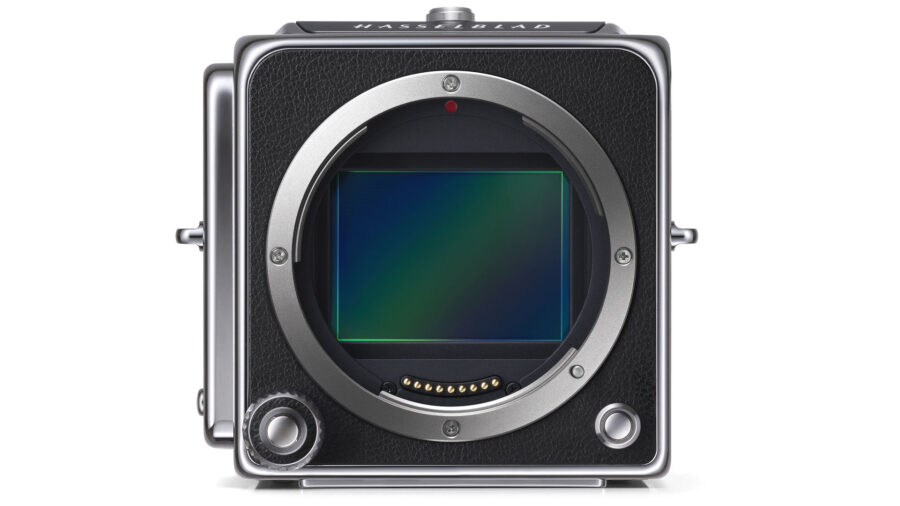
Price and availability
The Hasselblad 907X 100C is now available for $8,199. For more information, you can visit their website.
Would you consider the Hasselblad 907X 100C as a video camera? What are the compromises you would make for the unique user experience (and style) this camera provides? Let us know in the comments.






